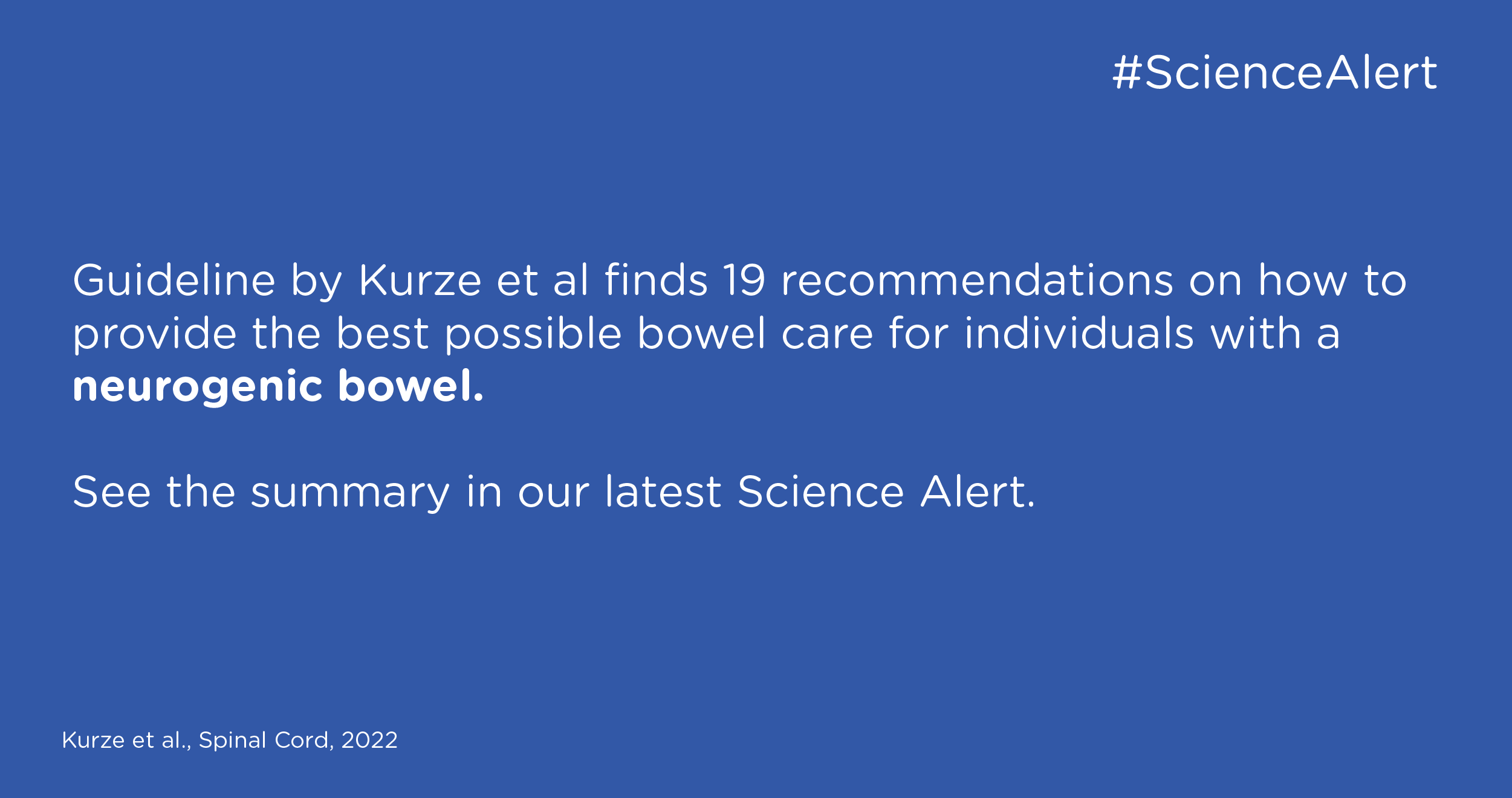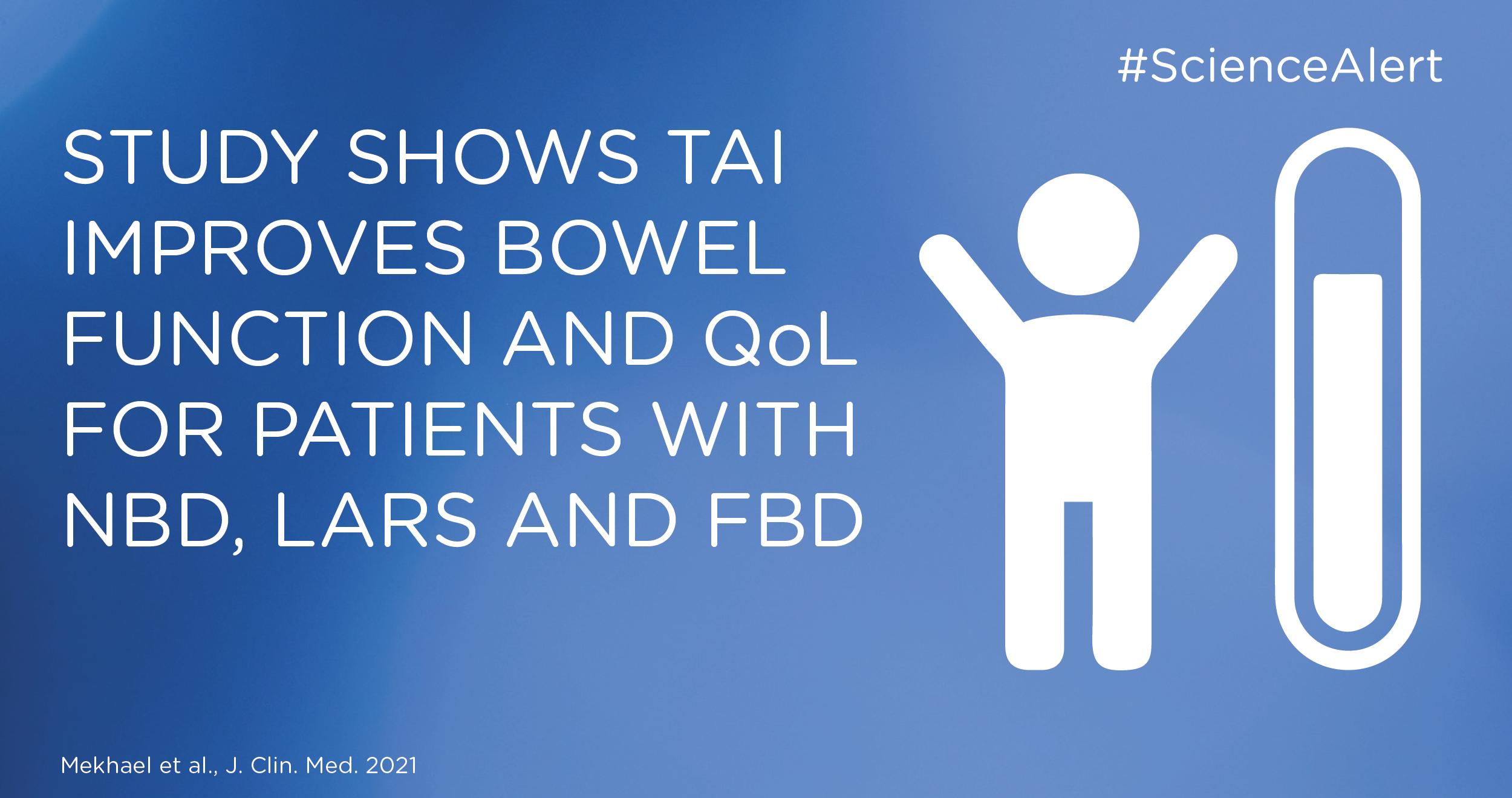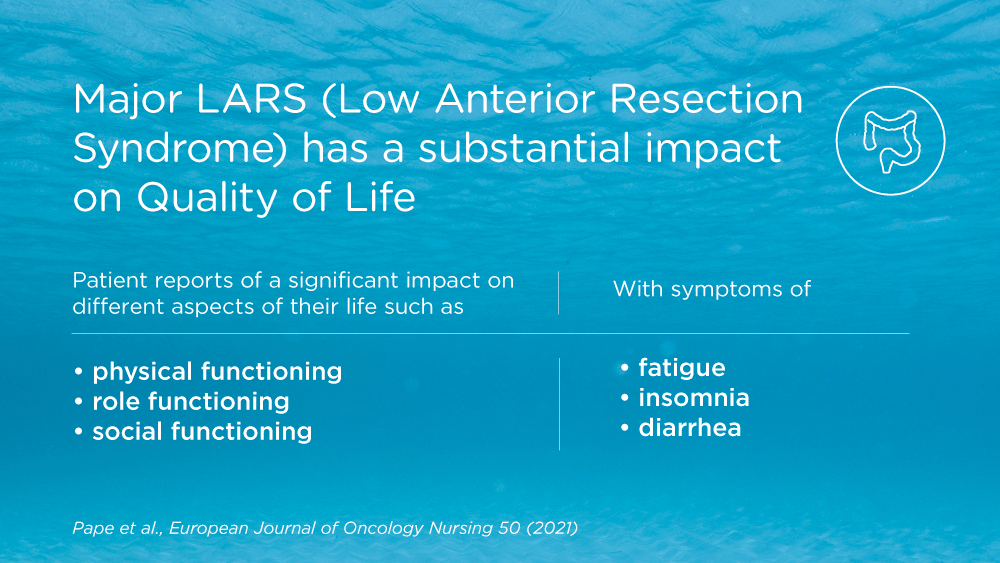Bowel dysfunction in spinal cord injury is very common and the guideline summarized here aims to provide practice-oriented support for bowel care in spinal cord injury patients. It is well-known that neurogenic bowel dysfunction (NBD) affects quality of life after spinal cord injury and bowel management is important to maintain health and well-being. To achieve a successful bowel management, it requires interdisciplinary teams working together.
Read MoreTopics: Transanal Irrigation, neurogenic bowel dysfunction
In this systemic review Mekhael et al shows collected evidence for that transanal irrigation (TAI) is a beneficial bowel continence care for both neurogenic bowel dysfunction (NBD), low anterior resection syndrome (LARS), and functional bowel disorders (FBD) presented as symptoms of fecal incontinence (FI) and chronic constipation (CC).
Read MoreTopics: Bowel management, Neurogenic bowel, Science Article
Neurogenic bowel dysfunction (NBD) with symptoms of constipation and fecal incontinence is a common complication of traumatic spinal cord injury. In a new study, the aim was to identify factors that could predict the recovery of independent bowel function to assist clinicians in their prognosis of bowel function and to guide them to bowel management strategies useful for the patient.
Read MoreTopics: Bowel management, constipation, Spinal Cord Injury, neurogenic bowel dysfunction
To address the lack of a standardized approach for the management of LARS, a bowel management program, called BOREAL, was developed and evaluated in this study, aiming to highlight the acceptability, feasibility and effectiveness of timely assessment and treatment of LARS.
Read MoreTopics: Bowel management, Transanal irrigation (TAI), Low Anterior Resection Syndrome (LARS), rectal cancer
Low anterior resection syndrome (LARS) has a substantial negative impact on quality of life and almost 70% of patients experienced major LARS 1-11 years after rectal surgery.
Read MoreTopics: Bowel dysfunction, Low Anterior Resection Syndrome (LARS), rectal cancer






